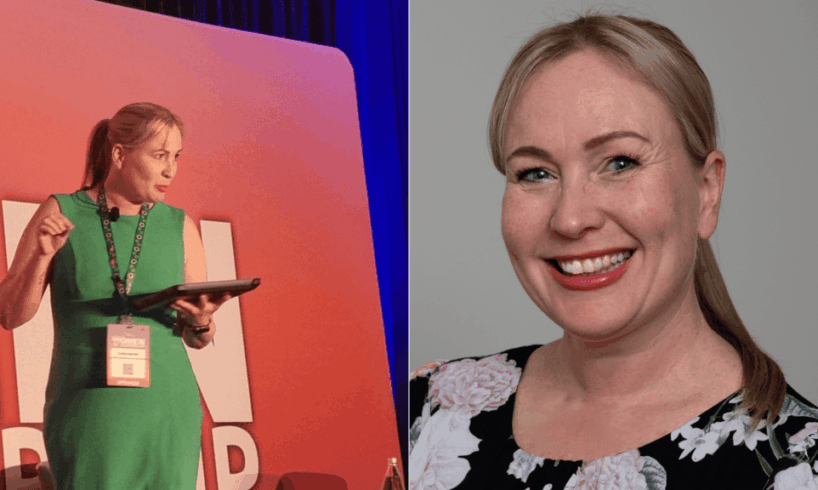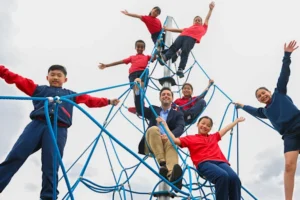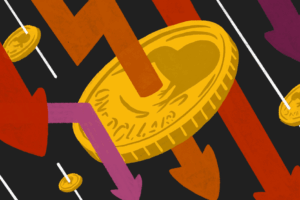
Callie Barrett was diagnosed with ADHD four years ago. In addition to being an executive director at the Australian Government Department of Health, Disability and Ageing, she’s a neurodiversity advocate.
Barrett says neurodivergent leadership can show up in a thousand different ways. And that matters as open neurodiversity becomes more normalised in the workplace.
There’s no one way to be a neurodivergent leader
Some neurodivergent leaders may be incredibly driven and work really long hours due to being hyperfocused. This is a state of intense concentration often associated with ADHD, autism and other forms of neurodivergence. It can result in a person becoming deeply absorbed in a task. Sometimes this can be to the point of losing track of time or other needs.
Related Article Block Placeholder
Article ID: 318166
Other leaders work long hours because they are aware they are operating in a space that is still prejudiced. There are still so many stereotypes that exist that they feel the pressure to not fail. Because if they do, it’s like they’re letting down every neurodivergent professional, especially those who are open about it.
Then there are those who may come across as less personable, but are very good at highly analytical activities. Others are incredibly warm in nature and are well known for providing a safe space. But every now and again, they may shut down.
Barrett says that, unfortunately, while it should go without saying, every neurodivergent person is different.
“We’re not all the same. You can’t homogenise around the stereotypes of myths that you think exist,” Barrett said to SmartCompany.
That being said, she does say there can be some real common threads.
“One of those is that the people are often very aware [of it]. If there’s something you do that consistently gets you criticism or you feel that you stand out, you are aware of it,” she says.
Barrett started her professional life as a police officer in the UK and South Australia. She has also worked in leadership positions in finance and in the housing sector, before joining the Australian Public Service seven years ago.
Since then, she has established and chaired the Department of Health and Aged Care Neurodiversity Network and was a founding member of the APS-wide Neurodiversity of Practice.
Related Article Block Placeholder
Article ID: 303062
Ever since being diagnosed with ADHD at 42, Barrett has had a consistent drive to help when it comes to neurodivergent leaders and workers.
“I work in human-centered design and behaviour, so I used a lot of that experience to start to really unpack what the issues are in workplaces for neurodivergent people and how I can then be part of a solution,” she says.
Finding a leadership style that balances professionalism and vulnerability
Barrett says over the last 10 years there has been a real change towards more inclusive leadership and a lot of talk about vulnerability in leadership.
“What I had found as a senior leader is this whole idea about vulnerability and leadership as a neurodivergent person tripped me up a little bit, because there is a level of vulnerability that is safe and a level of vulnerability that improves your leadership,” she says.
“So I went on a very deliberate journey of exploring where, as a neurodivergent person, it was safe for me to be vulnerable as a leader without then causing this idea that maybe I wasn’t capable or maybe there was a level of chaos.”
While her leadership style has evolved over time and she has developed a leadership persona that balances authenticity, professionalism, and safe vulnerability, Barrett says she has quite a specific leadership persona now.
“It’s a very privileged one, because about three or four years ago, I started to use the fact that I was in a senior leadership position and had a level of privilege there to be open about being neurodivergent and create this inclusivity, or this idea, that leaders can be neurodivergent,” she says.
As a result of that process, Barrett found the number of leaders around her questioning whether they were neurodivergent increased.
Related Article Block Placeholder
Article ID: 294562
“Through that, I have developed this persona that [is very deliberate] so that I don’t get the vulnerability hangover after I’ve had a meeting with a new team,” she says.
A “vulnerability hangover” is the emotional discomfort or regret someone might feel after being open or exposed in a professional setting — especially when unsure how it was received.
What Barrett is referring to here is the emotional discomfort or self-doubt that can follow after being open or exposed, especially if you’re unsure how that vulnerability was received. This can often be heightened in professional settings.
Barrett says her leadership is informed by the fact that she is both neurodivergent and a professional.
“I have people who very much look to me for guidance, stability, consistency and so my leadership style now reflects how I can have a safe level of what I call professional masking.”
Barrett says there’s a lot of feelings and emotions caught up in the term masking. This is a term used to refer to ways neurodivergent people, consciously or unconsciously, hide parts of themselves to fit into neurotypical environments.
“Because there is a difference between a mask that, as a neurodivergent person, we’re forced to wear over years of criticism and years of knowing we’re not good enough or feelings of rejection, to the one that I now have constructed for myself,” she says.
“What I work with people on is, how do you construct your own mask, the mask that you choose when you walk into a professional workplace? How do you now find a leadership persona or mask that is entirely of your choice? Mine is that safe vulnerability.”
Callie Barrett is speaking at the upcoming Women Unlimited Leadership Summit.





